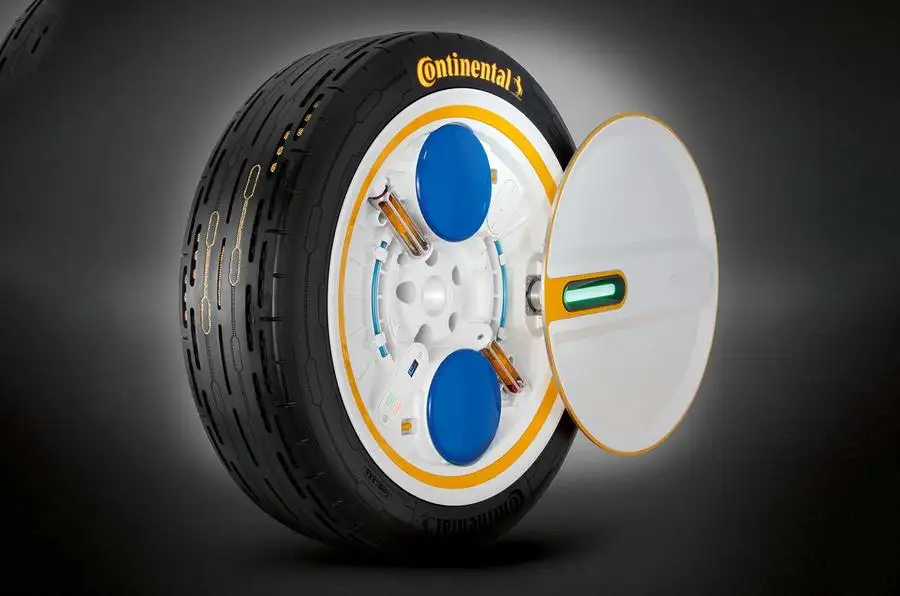Embedded sensors could remove the need for regular maintenance and improve lifespan by 7400km.
Tyre makers have been steadily making progress over the years in convincing drivers that their products are more than occasional distress purchases.
Many drivers have discovered the benefits of winter tyres, for example, and any self-respecting enthusiast is choosy about what rubber they fit to their performance car.
Now tyres makers are gearing up to push the boat out on more conspicuous technologies in the form of intelligent tyres.
Pirelli recently talked to us about its plans for smart tyres containing embedded chips. Continental has some ideas along similar lines, one of which it calls the Care tyre, which stands for connected, autonomous, reliable and electrified.
Like Pirelli, Continental is developing tyre pressure monitoring systems (TPMS) based on sensors embedded in the tyre tread.
One example is direct TPMS, which consists of a small battery-powered sensor fitted to the back of the tyre valve inside the wheel, rather than in the tyre itself.
Embedded sensors will do more than just monitor tyre pressure: they will also keep tyres inflated to the correct pressure, as part of a technology Continental calls Pressure Proof.
Part of that is something called Pressure Boost, which consists of a small air pump mounted in the wheel itself, energised by centrifugal force as the wheel spins. Excess air is stored in a small, integrated tank ready for topping up the pressure the instant the system detects that it has dropped.
It sounds and looks elaborate, but given the need to improve fuel and energy efficiency of cars, tyre makers obviously think the idea is worth pursuing. Continental estimates tyre life could be extended by as much as 7400km and fuel economy boosted (or rather energy efficiency increased) by up to 3%.
The idea of having a dedicated wheel and tyre assembly may seem complicated, but it wouldn’t be a first: run-flat wheel and tyre assemblies being one example. And anyway, we’re talking future tech here.
The smart tyre sensors will do other things as well. Like other tyre makers working on these ideas, Continental has an eye on autonomous cars and shared fleets, where multiple drivers have access to one car.
Sensors in the tyres will collect temperature and pressure data across the fleet, which will then be analysed and used to predict hazards based on things like weather conditions.
Looking further ahead, if and when high levels of autonomy finally arrive on our roads, tyre makers see connected tyres playing an important part.
Constant monitoring of the surface conditions (so how much water or ice is on the road), pressures, wear and damage will need to happen somehow if autonomous hire cars can one day deliver themselves to customers and back to base or driverless robotaxis end up roaming the streets untouched by a human driver’s hand.




